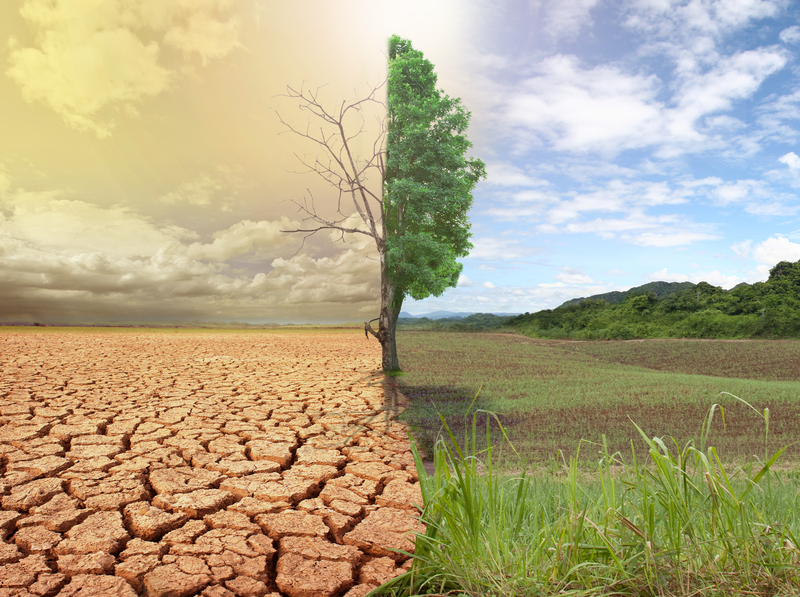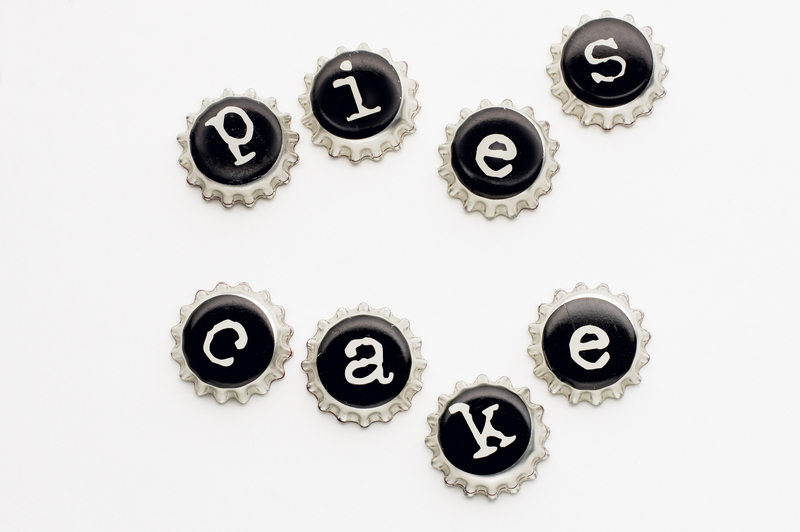Beyond the Bin: Transforming Waste Materials into Useful Treasures
In an age where environmental concerns are at an all-time high, the concept of transforming waste materials into useful treasures has never been more critical. With growing awareness about climate change and dwindling natural resources, finding innovative uses for what we once considered "trash" is not just a trend but a necessity. This comprehensive guide explores the journey of waste materials beyond the bin, showcasing creative solutions, upcycling ideas, and technological advancements in recycling that are shaping a greener future.
Understanding the Importance of Waste Repurposing
Before diving into the creative world of turning trash into treasures, it's essential to comprehend why repurposing waste materials is so significant. The adverse effects of landfill overflow, pollution, and the depletion of natural resources have thrown humanity into a crisis. Every product we discard represents materials extracted, energy consumed, and emissions generated.
- Environmental Protection: Diverting waste from landfills helps lower greenhouse gas emissions and protects ecosystems.
- Resource Conservation: Upcycling and recycling conserve raw materials and reduce the need for new resource extraction.
- Economic Benefits: Reimagining waste creates new business opportunities, jobs, and markets for innovative products.
- Community Engagement: Creative reuse projects stimulate community involvement and environmental education.
With these compelling reasons in mind, let's explore how waste can be transformed into valuable resources and treasures.

The Difference Between Recycling and Upcycling
It's common to hear people use recycling and upcycling interchangeably, but they represent two distinct approaches to repurposing waste:
- Recycling: Refers to breaking down waste materials and using them to create new products of similar or lesser value. For example, recycling plastic bottles to make more bottles or fibers.
- Upcycling: Involves creatively reusing materials to make new products of greater value or utility, often with an added aesthetic dimension. An example is crafting stylish furniture from old pallets.
Both recycling and upcycling contribute to a sustainable world, but upcycling, in particular, unlocks the potential for unique, valuable, and useful treasures derived from waste.
Innovative Ways to Transform Waste into Treasures
1. Creative Upcycling Projects
Some of the most inspiring examples of transforming waste into treasures come from the realms of art, decor, and DIY enthusiasts. Here are a few ideas:
- Furniture from Pallets and Old Wood: Discarded pallets can be repurposed into rustic coffee tables, bookshelves, and even garden planters.
- Glass Bottle Lamps: Empty wine or soda bottles find new life as chic lamps, vases, or candle holders.
- Tire Planters and Playground Equipment: Worn-out tires can be converted into vibrant garden planters or safe, bouncy playground features.
- Clothing Upcycling: Old jeans become bags; t-shirts are woven into rugs; scarves from fabric scraps create signature style statements.
- Plastic Bag Weaving: Used plastic bags are transformed into durable baskets, purses, or mats, reducing plastic pollution.
For artists and designers, waste is not a problem but a palette, offering endless possibilities for imagination and sustainability.
2. Industrial and Commercial Repurposing
On a larger scale, businesses and manufacturers are finding value in waste by transforming it into useful commercial products:
- Recycled Construction Materials: Concrete and asphalt can be made with recycled glass or crushed brick, creating durable and eco-friendly infrastructure.
- Eco-friendly Packaging: Companies are creating packaging from agricultural waste, recycled plastic, or biodegradable materials, reducing their carbon footprint.
- Electronic Waste Recovery: Old electronic devices are stripped for precious metals and recycled plastics, supplying materials for new tech gadgets.
- Recycled Fashion: Global fashion brands are now creating stylish apparel and footwear using recycled polyester, nylon, and even ocean plastics.
By integrating waste transformation into their operational models, companies showcase how environmental responsibility can drive innovation and profit.
3. Agricultural and Organic Waste Solutions
Organic waste is often seen as garbage, but it can be converted into black gold:
- Composting: Food scraps and yard trimmings produce nutrient-rich compost, keeping waste out of landfills while enriching soil for gardens and farms.
- Bioenergy: Agricultural by-products, like crop stalks or husks, are transformed into biogas or biofuels, providing renewable energy sources.
- Animal Feed: Some food processing wastes can become safe, nutritious animal feed, supporting circular agriculture.
The Role of Technology in Modern Waste Transformation
Thanks to technological advancements, transforming waste into useful resources has become more efficient and far-reaching. Innovative machinery and processes are radically changing the recycling and upcycling landscape:
- AI-Powered Sorting: Artificial Intelligence and robotics quickly and accurately sort recyclables from mixed waste streams, improving material recovery rates.
- Chemical Recycling: Unlike mechanical recycling, which degrades materials, chemical recycling breaks plastics down to their building blocks for endless reuse without loss of quality.
- 3D Printing with Recycled Plastics: Waste plastics are being transformed into 3D printer filaments, enabling decentralized and creative manufacturing of new products.
- Waste-to-Energy Plants: Modern incineration facilities generate clean energy from non-recyclable waste, converting trash into electricity or heat.
These breakthroughs prove that what was once considered "junk" can actively contribute to a circular, regenerative economy when technology is leveraged smartly.
Benefits of Transforming Waste Materials
The rewards of taking waste materials beyond the bin ripple across every facet of society. Let's examine the principal benefits:
- Reduces Landfill Waste: Every upcycled or recycled item means one less object taking up space in ever-growing landfill sites.
- Conserves Precious Resources: Using existing materials lessens the demand for virgin raw materials, helping protect natural habitats.
- Cuts Down Pollution: Diverting waste reduces soil, water, and air pollution caused by conventional waste disposal methods.
- Promotes Eco-friendly Innovation: New products made from waste often inspire further advancements in sustainability and environmental consciousness.
- Engages the Community: Transformation projects, especially creative upcycling, foster communal creativity and environmental stewardship.
The shift towards transforming waste is not just a practical necessity--it's a pathway to a cleaner, healthier, and more prosperous planet.
Challenges on the Path to Waste Transformation
Although the benefits are extensive, there are real challenges when it comes to turning waste into wonders:
- Lack of Awareness: Many individuals and businesses are still unaware of the full potential and techniques for reuse and upcycling.
- Separation and Collection Issues: Mixed waste streams or contamination can make effective transformation difficult or costly.
- Technological Barriers: Not all regions have access to advanced recycling or upcycling facilities.
- Economic Constraints: Sometimes, recycled or upcycled products are more expensive than those made from virgin materials due to limited economies of scale.
Overcoming these hurdles demands ongoing public education, investment in technology, and innovative policymaking.
How You Can Join the Movement
Everyone can play a role in transforming waste materials into useful treasures--from individuals at home to schools and large companies.
Steps You Can Take:
- Start at Home: Separate recyclables, compost organics, and look for creative ways to upcycle old items before discarding them.
- Support Sustainable Brands: Choose products made from recycled or upcycled materials and support local artisans using waste creatively.
- Educate and Inspire: Share upcycling tips and success stories within your community or on social media to inspire others.
- Participate in Community Projects: Join or organize local clean-up days, recycling drives, or workshops on creative waste transformation.
By making mindful choices and championing innovative reuse, we collectively push the boundaries of what is possible beyond the bin.
Success Stories: Waste to Wealth Around the World
- Recycled Ocean Plastic Sneakers: Global sportswear giants have partnered with environmental organizations to retrieve discarded fishing nets and ocean plastic, converting them into stylish, high-performance sneakers and apparel.
- Eco-bricks: Around the world, people are stuffing discarded plastics into bottles to make "eco-bricks," which are then used as building materials for homes, schools, and community structures--helping both waste management and affordable construction.
- Precious Plastics: An open-source community initiative has empowered DIY recyclers to make their own machinery for shredding, melting, and reforming plastic waste into bowls, tiles, and furniture.
- Art from Scrap: Many contemporary artists and sculptors exclusively use found and discarded objects, transforming junk into museum-worthy installations and raising awareness about overconsumption.

Looking Forward: The Future of Waste Materials Transformation
As environmental pressures mount, the drive to innovate beyond the bin will only intensify. We can expect:
- An explosion of circular economy models integrated into business and urban planning.
- Greater use of biodegradable and compostable products.
- Advanced material science breakthroughs to make more products easily recyclable or upcyclable.
- An uptick in community-based upcycling enterprises that blend art, commerce, and sustainability.
- Continued evolution in waste-to-energy and waste-to-product technologies--turning yesterday's trash into tomorrow's treasure.
Conclusion: Every Step Beyond the Bin Counts
Transforming waste materials into useful treasures is a journey that echoes the resourcefulness and creativity of humanity. Every bottle reused, every scrap repurposed, and every idea shared becomes a spark for larger change. By looking beyond the bin, we unlock a world where materials live countless lives, landfills shrink, and communities thrive with new opportunity.
If each of us embraces the mindset of seeing potential in discarded materials, the collective impact will shape a more sustainable, innovative, and beautiful world. So, the next time you hold something destined for the trash, ask yourself: what treasure might it become?
Together, let's take bold steps beyond the bin and transform waste materials into lasting treasures--for ourselves and generations to come.